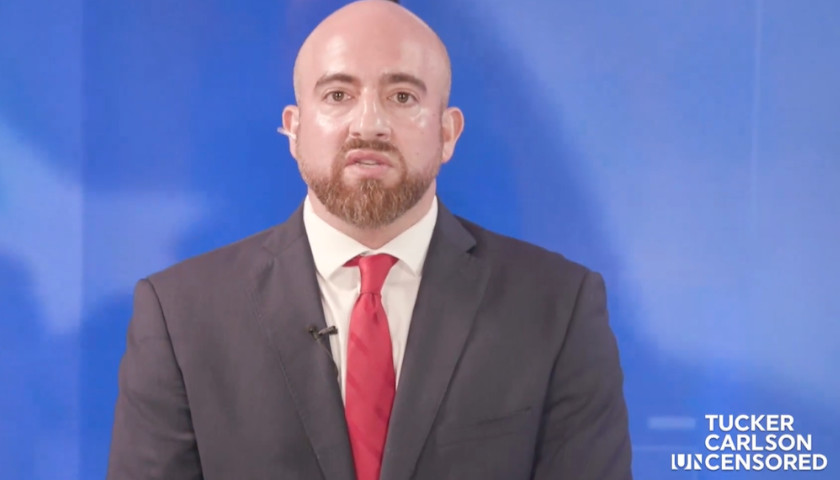According to an expert in internet free speech, the RussiaGate hoax perpetrated against former President Donald J. Trump’s 2016 election campaign was the beginning of the security state’s inward focus on domestic censorship online.
Mike Benz, the founder and executive director of the Foundation for Freedom Online (FFO), told Tucker Carlson in an interview last week that since the mid-20th century, there was an unwritten rule that security state apparatuses like the Central Intelligence Agency (CIA) were not to be used domestically against the American people, but that the security state knew how powerful its apparatus could be if turned inward.
Ep. 75 The national security state is the main driver of censorship and election interference in the United States. "What I’m describing is military rule," says Mike Benz. "It’s the inversion of democracy." pic.twitter.com/hDTEjAf89T
— Tucker Carlson (@TuckerCarlson) February 16, 2024
“[They said] ‘it’s really effective, guys,'” Benz (pictured above) said. “We need a department of dirty tricks to be able to do this around the world, and it’s essentially a new social contract we’re constructing with the American people because this is not the way we have conducted diplomacy before, but we are now forbidden from using the War Department – in 1948 they also renamed the War Department to the Defense Department – again, as part of this diplomatic onslaught for political control, rather than it looking like overt military control.”
“But essentially what ended up happening there is we created this foreign/domestic firewall,” Benz continued. “That we have a department of dirty tricks to be able to rig elections, to be able to control media, to be able to meddle in the affairs of every other plot of dirt in the world, but this sort of sacred dirt on which the American homeland sits, they are not allowed to operate there. The State Department, the Defense Department are all expressly forbidden from operating on U.S. soil. Of course, this is so far from the case it’s not even funny.”
After giving background context, Benz explained just how the RussiaGate hoax led to the dramatic increase in domestic censorship. He said:
“There was no moral quandary at first with respect to the censorship industry when it started out in Germany and in Lithuania and in Latvia and in Estonia and Sweden and Finland. There began to be a more diplomatic debate about it after Brexit and then it became full throttle when Trump was elected, and what little resistance there was was washed over by the rise of RussiaGate, which basically allowed them to not have to deal with the moral ambiguities of censoring your own people, because if Trump was a Russian asset, you know longer really had a traditional free speech issue, it was a national security issue. It was only after RussiaGate died in July of 2019 when [Former Director of the FBI] Robert Mueller basically choked on the stand for three hours and revealed that he had absolutely nothing after two-and-a-half years investigation that the foreign to domestic switcheroo took place where they took all of this censorship architecture spanning [The Department of Homeland Security], the FBI, the CIA, the [Department of Defense] the [Department of Justice] and then the thousands of government-funded NGOs and private-sector mercenary firms were all basically transited from a foreign predicate, a Russian disinformation predicate to a democracy predicate by saying that disinformation is not just a threat when it comes to the Russians, but is an intrinsic threat to democracy itself. And so by that, they were able to launder the entire democracy promotion regime change toolkit to just in time for the 2020 election.”
Though the RussiaGate hoax has been thoroughly debunked, many Americans, including some in the media, are still convinced that Trump somehow conspired with Russia to win the 2016 election.
– – –
Pete D’Abrosca is a reporter at The Tennessee Star and The Star News Network. Follow Pete on Twitter/X.
Photo “Mike Benz” by Tucker Carlson.








